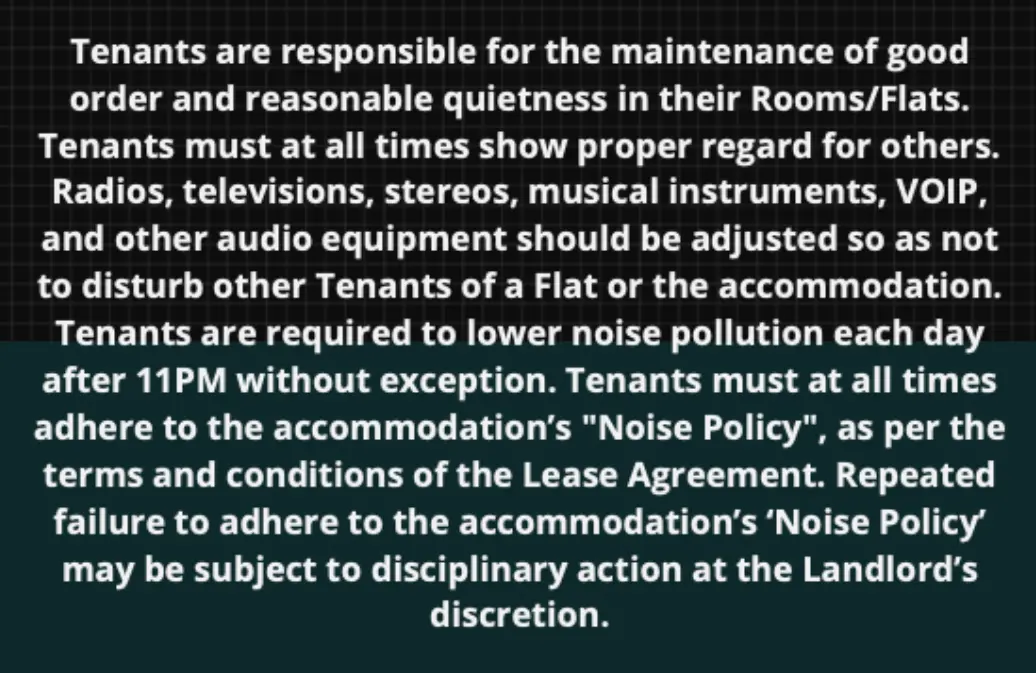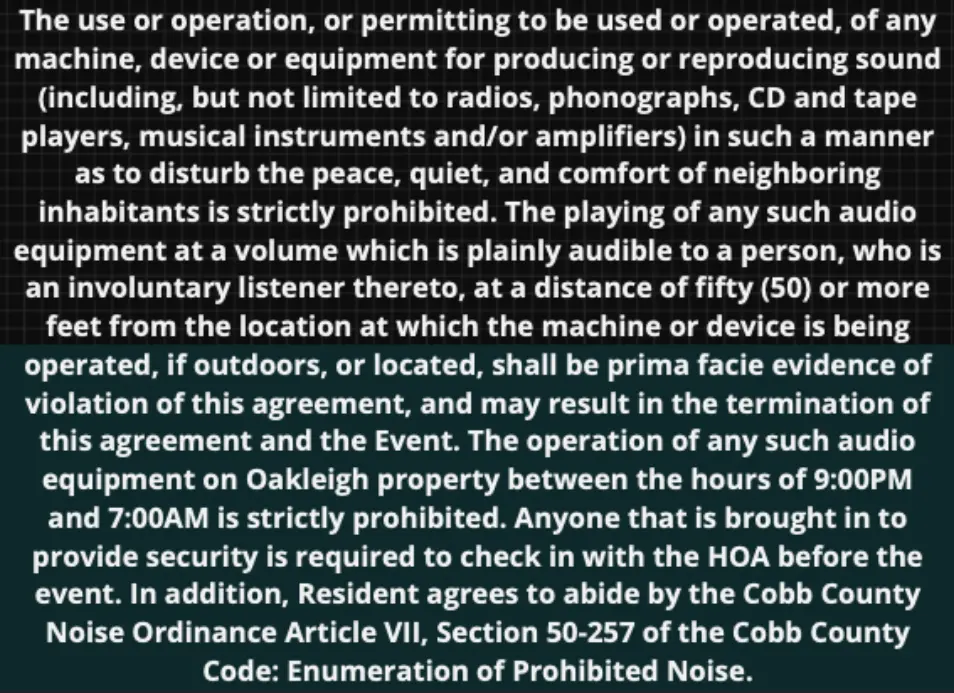
From banging drums to barking dogs, from late-night running feet to early-morning running lawnmowers –– noise complaints are a genuine concern for renters, and therefore they should also be a concern for landlords.
But where do landlords draw the line between reasonable and unreasonable noise? How many noise complaints are too many? And is it legal to evict a tenant for being too noisy?
By looking into leases and local laws, we can answer these questions and more. But first, let’s examine why landlords need to take noise complaints seriously.
A landlord has a two-fold responsibility in regard to noise. On one hand, they’re responsible to their tenants, and on the other, they’re responsible for their tenants. For this reason, it’s important to be very clear about noise guidelines with tenants.
Landlord-tenant laws are set and governed by state and local authorities. While they may differ slightly in terminology, in some variation all landlord-tenant laws will include the fact that the landlord must provide a clean, safe, and habitable living environment for their tenants.
Part of providing a habitable living environment means ensuring that tenants are kept free from unreasonable noise. As such, the landlord has a responsibility to the tenant: a responsibility to provide an environment of reasonable peace and quiet.
As the owner of the property, the landlord also bears a responsibility (in part) for what goes on there. This responsibility comes into play in a few ways.
The landlord has a clear responsibility regarding noise, but of course, tenants are also responsible for their own choices. With this in mind, it’s important for landlords to be clear about noise guidelines in their leases. Tenants should know what’s expected of them –– in writing –– before moving in.
Landlords should write a noise clause into their leases. A good noise clause within a rental agreement might include directives about the following:
The example noise clause below contains wording that outlines noisy activities, provides a quiet hour, and establishes the landlord’s right to discretionary discipline.

Source: Law Insider
In order to further remind tenants of their rights and responsibilities, landlords may also want to refer tenants to local noise ordinances, such as in the following example.

Source: Law Insider
Including a noise clause in the lease agreement allows the landlord to take action based on breach of contract, if and when a noise complaint is filed. However, not all noise complaints are valid. A landlord needs to apply discretion and investigate further when receiving a noise complaint.
Valid noise complaints may derive from several different sources, including but not limited to:
All of these may lead to complaints about unreasonable noises either from tenants or about tenants. Nevertheless, there could be extenuating circumstances surrounding these loud noises, so landlords should always look into them more closely.

Noise violations can be tricky because usually, the landlord is not there when it happens. Thus, if a landlord receives a noise complaint, the first step should always include gathering more information. Ask the person who lodged the complaint (whether that be your renter or a neighbor) the following questions:
Hopefully, you’ll find that the individual has done everything in their own power to remedy the situation themselves and that they’ve got some kind of documentation (video, email, phone, etc.) for you to reference. Otherwise, you’ll need to decipher whether this person is telling the truth about the noise or whether they’re just trying to stir up unwarranted trouble.
If you feel that the complaint is valid and truthful, your best bet is then to approach the noisy person directly. If it’s your tenant, be sure to have a copy of your lease with you (or copy the noise clause if you’re emailing). Remind the tenant that they are responsible to uphold the clause, per the terms of your lease.
If the person causing noise is not your tenant, the situation becomes a bit more difficult. Yes, it would always be good to have a conversation first, in order to give the person a chance to change their noisy ways. But you don’t have a legally-binding lease with a non-tenant, so a conversation would be based purely on goodwill.
If the noise continues after you’ve approached the individual directly, you may need to take things a step further.
In the case of your own tenant causing the noise, you’ll need to refer to any specific disciplinary action outlined in your lease, as well as any noise guidelines in your local landlord-tenant laws.
Check for any explicit rules about noise documentation and the number of noise warnings. If the tenant continues to ignore warnings regarding noise, there is likely grounds for eviction.
As far as the next steps for non-tenant noise makers, you have less control, but you still should pursue a solution for your tenant’s sake. You may need to reach out to the other landlord (if the property is rented), to the community mediator (if there’s an HOA), or to law enforcement (if you have solid documentation). You or your tenant may also have grounds to sue for monetary damages in small claims court.
Bottom line: How many noise complaints should a landlord tolerate before eviction? Well, the answer is obviously situational. But because the landlord is responsible for the noise surrounding the dwelling, every noise complaint should be taken seriously.
For more information about landlord responsibilities and real estate investment opportunities, browse our New Western blog, where we keep you up to date on market trends, landlord legalities, and more.
Tap into in-depth, industry-leading education resources from articles, videos, guides, and reports every week, and get ready to take action in your real estate investing business.
Disclaimer: The information provided on this website does not, and is not intended to, constitute legal advice; instead, all information, content, and materials available on this site are for general informational purposes only.